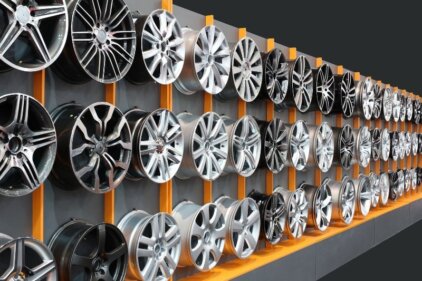When it comes to cars, many enthusiasts seek ways to enhance their performance and unlock their full potential. One popular method is automotive tuning, a process through which the engine and other components of a vehicle are modified to improve its performance, power, and overall driving experience. Automotive tuning involves various modifications, such as upgrading engine parts, recalibrating the engine control unit (ECU), and optimizing the fuel and ignition systems. While automotive tuning can provide significant benefits, it also comes with its fair share of drawbacks. In this article, We will discuss the pros and cons of automotive tuning, allowing you to make an informed decision about whether it is the right choice for you.
The pros of automotive tuning
Improved performance and power
One of the primary reasons why car enthusiasts opt for automotive tuning is to unleash the true potential of their vehicles. By making modifications to the engine and other components, automotive tuning can significantly increase the power output and overall performance of a car. Upgrading the exhaust system, for example, can improve the engine’s breathing ability, resulting in enhanced power delivery and acceleration. Additionally, modifying the intake system, such as installing a cold air intake or a high-performance air filter, can provide a boost in horsepower and torque. These enhancements allow drivers to enjoy a more exhilarating driving experience, especially during spirited driving or track days.
Enhanced fuel efficiency
Contrary to popular belief, automotive tuning doesn’t always mean sacrificing fuel efficiency. In fact, when done correctly, tuning can improve a vehicle’s fuel economy. As part of the tuning process, the ECU can be recalibrated to optimize the air-fuel mixture and ignition timing, ensuring that the engine operates at its most efficient level. By fine-tuning these parameters, automotive tuning can maximize fuel combustion, resulting in improved fuel efficiency. This means that even with increased power and performance, you can still enjoy better mileage and fewer trips to the fuel pump.
Personalization and customization
Automotive tuning offers car owners the opportunity to personalize and customize their vehicles according to their preferences. Whether it’s enhancing the exterior with a body kit, upgrading the suspension for better handling, or installing a high-end audio system, tuning allows individuals to create a unique and tailored driving experience. Furthermore, tuning can also include aesthetic modifications such as custom paint jobs, vinyl wraps, or interior enhancements. These personalized touches not only make your car stand out from the crowd but also reflect your individual style and taste.
The cons of automotive tuning
Potential warranty voiding
One of the most significant drawbacks of automotive tuning is the potential voiding of your vehicle’s warranty. Most car manufacturers have strict policies regarding modifications made to their vehicles. If any modifications are detected, it can lead to the cancellation of your warranty coverage. This means that if you encounter any issues or failures related to the modified parts, you will have to bear the full cost of repairs. While some aftermarket companies offer warranties for their products, they may not cover all possible damages or failures. It is crucial to thoroughly research the warranty implications and consult with your vehicle manufacturer before proceeding with any modifications.
Increased maintenance and repair costs
Another consideration when it comes to automotive tuning is the potential increase in maintenance and repair costs. Modifying your vehicle’s components can put additional stress on various parts, leading to accelerated wear and tear. Upgraded components may require more frequent maintenance or replacement, which can be costly in the long run. Additionally, tuning can also affect the overall reliability of a vehicle. Increased power and performance may put additional strain on the engine, transmission, and other drivetrain components, increasing the likelihood of failures and breakdowns. It is important to factor in these potential costs before deciding to tune your car.
Legal and regulatory considerations
Automotive tuning is not without its legal and regulatory considerations. Depending on your location, certain modifications may not be legal or may require specific certifications. Exhaust modifications, for example, may be subject to noise regulations, while engine modifications may require emissions compliance. Failure to comply with these regulations can result in fines, penalties, or even the impoundment of your vehicle. It is crucial to familiarize yourself with the local laws and regulations governing automotive modifications to ensure that you stay on the right side of the law.
Conclusion
Automotive tuning can undoubtedly unlock the power within your vehicle, providing improved performance, enhanced fuel efficiency, and a personalized driving experience. However, it is important to weigh the pros and cons before embarking on the tuning journey. Consider the potential warranty voiding, increased maintenance and repair costs, and legal and regulatory considerations. Ultimately, the decision to tune your car should align with your goals, preferences, and budget. If you choose to proceed, ensure that you work with reputable professionals who have experience in automotive tuning to maximize the benefits while minimizing the risks. Happy tuning!





